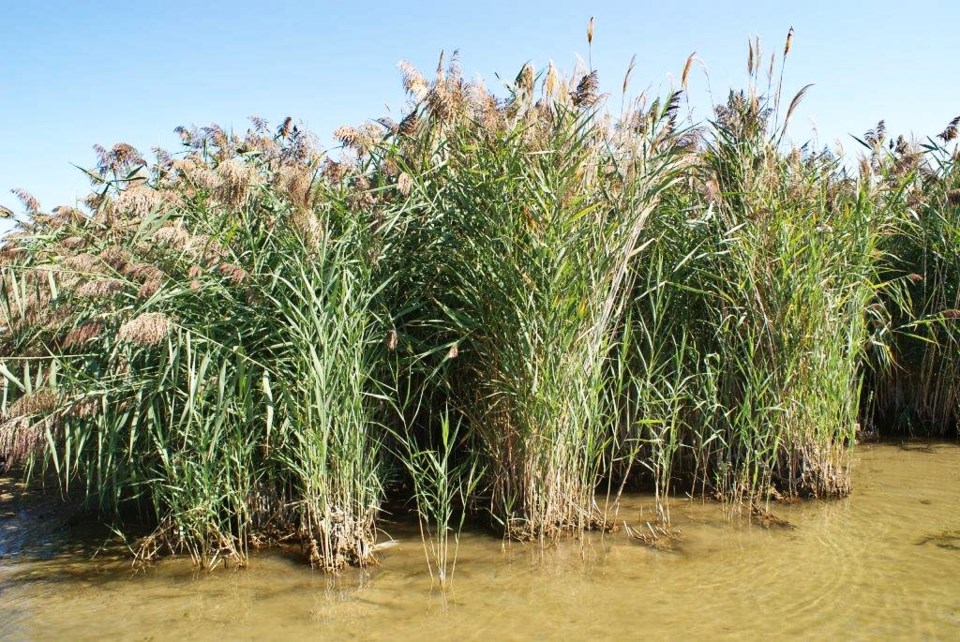The city is taking the first steps in the removal of an invasive plant species wreaking havoc in Guelph and across Ontario.
On July 20, south end residents received a letter from the city saying they will be treating invasive phragmites plants – a dense, tall invasive grass – along the trails of Gosling Gardens Park. The park is one of four locations where removal of phragmites will take place. While weather dependent, treatment at Gosling Gardens Park will start Monday, and take place over the course of five days.
The City of Guelph website said phragmites, also called European Red Weed, is an aggressive plant that spreads quickly creating dense strands of reeds that displace native plant species in wet areas. It adds these plants can also block and impair the function of storm water drains, causing road hazards and impacting water related recreational activities.
Chelsea Gray is a natural areas stewardship technician who is part of the city’s invasive management species program. She said phragmites have been on the city’s radar for quite some time, and they want to begin treatment before it continues to spread.
"There are sites where it is beginning to become a problem," Gray said. "With phragmites, it produces a large number of seeds and creates monocultures. They will continue to spread and continue to become dense."
If phragmites get into wetlands and stormwater ponds, Gray adds the plants impact bird populations, amphibians and reptiles.
"Once we take a site on, we're going to be managing it for three or four years, depending on the species," said Gray.
To tackle the invasive species, the city is teaming up with an organization called the Invasive Phragmites Control Centre (IPCC). Gray said the IPCC is a provincial expert on phragmites control and has worked with other municipalities.
"We've contracted their services out to assist us with what we are calling the phragmites control demonstration project," said Gray. "This year, we selected four sites that all have slightly different characteristics or density levels of phragmites and enlisted the help of the IPCC team to basically do a demonstration of treatment of these four sites for us. depending on the results of the demonstration project, we may consider adding additional sites through the IPCC, or taking on more sites through our own program."
The other sites the city and IPCC are looking at include, Harts Lane West, Niska Road and Ptarmigan Drive, and Gordon Street and Edinburgh Road South.
During the first phase of the project, Gray said workers will use a herbicide application of Round up WeatherPro on all land phragmites and cut down all phragmites in water. In November or December, workers will return to complete the second phase, which involves collecting the dead plants and pilling them together to decompose for native plants.
Next year, the team will monitor these sites to see if native plants are regenerating in these sites, or phragmites.
"If it's phragmites that we're seeing coming back to these sites, then we will have to do a second treatment of our herbicide application on land. If it's standing water, we can cut it below water level and drown it, if water levels are high enough," said Gray, noting the cutting phragmites in water will more likely happen next spring.
Gray said they are using an integrative pest approach, and when using herbicide, the city will use licenced professionals and follow provincial and federal regulations to apply the herbicide in the safest possible manner.
"It is one of the many tools we have to treat nature, but it's important to have," said Gray.
While city workers are out conducting this work, Gray encourages residents to remain on the trails until the work is complete.
"Once our signs are removed, or the date on the information sign says a reentry day, then you are welcome to come back within that space," said Gray.
The City of Guelph website also lists ways residents can help remove phragmites from their private property at guelph.ca.
